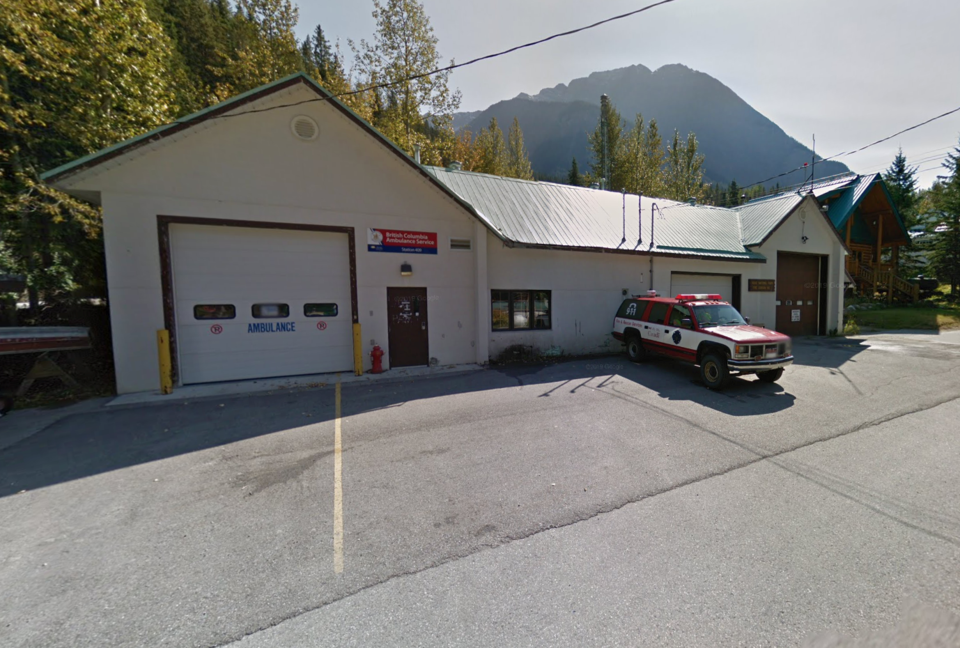FIELD, B.C. – Field’s volunteer fire department and Parks Canada have reached an interim agreement for reduced emergency response to accidents on the Trans-Canada Highway in Yoho National Park.
As of April 1, Field Fire Department and Rescue (FFDR) is responding to vehicle fires and vehicle extrications only over the next two months while a long-term solution is investigated. B.C. Ambulance and the RCMP continue to respond to motor vehicle emergencies.
“We agreed to do minimum rescue service on the Trans-Canada Highway. That means vehicle fires and auto extrication,” said Patrick Cais, Field’s acting fire chief.
“What we wouldn’t respond to is hazardous spills or leaks, or if there’s a vehicle in the ditch or a rollover or incident, but all the passengers are safely out of the vehicle.”
Following failed negotiations with Parks Canada leading up to FFDR’s contract expiring on March 31, the fire department had indicated it would no longer respond to emergencies on the Trans-Canada Highway, and would only fight building fires in the townsite and park.
The department has long argued a full-time, paid fire chief is needed to help deal with a growing number of emergency calls on the highway, as well as the increased burden of liability, time demands and administrative requirements to operate a fire department.
FFDR has been without a fire chief since July 2019 because no-one in Field is willing to take on the busy volunteer job under the existing stressful circumstances.
Cais said Parks Canada has now agreed to an independent functional audit of the fire department.
“We want to make sure we have a clear picture of the fire department and its needs,” he said.
“We believe that this audit will definitely show we need to strengthen the fire department and go to a full-time fire chief.”
Parks Canada officials say public safety is of the utmost importance for the federal agency, which is committed to providing emergency services to road travellers through Yoho National Park.
“Parks Canada continues to work closely with the Field Fire and Rescue Department on long-term solutions for road rescue in Yoho National Park,” said Lesley Matheson, a Parks Canada spokesperson for Lake Louise, Yoho and Kootenay.
“The Field Fire and Rescue Department has agreed to resume responding to calls for vehicle extrication and vehicle fires for a two-month period while options for a longer-term solution are explored by both parties.”
Cais said he believes it’s in everyone’s best interest to find a solution.
“We don’t want this for the fire department. We do this for all the community, the visitors, the travellers,” he said. “That’s what pushes us to do what we do.”
FFDR, a local non-profit society with currently 17 members, has historically provided services on the Trans-Canada Highway from the Yoho National Park boundary to the B.C.-Alberta border by way of an annual contract with Parks Canada.
In 2019, FFDR responded to 57 calls in Yoho, and 33 of those were for road-related incidents such as vehicle accidents or vehicle fires.
While Field has a population of 130 people, FFDR also serves millions of visitors to the national park every year, as well as all the traffic travelling on the national transportation corridor through the park, including commercial traffic.
A 2003 Justice Department decision indicates Parks Canada is legally obligated to provide emergency response in Yoho to ensure structural fire suppression, motor vehicle accident response and hazardous material containment responses.
Parks Canada management contacted staff at the Town of Golden requesting that municipality temporarily provide this service for about a two-month period. But Golden town council turned down this request in mid-March.
In addition, Parks Canada has been in talks with Lake Louise fire department, which is operated by Improvement District No. 9, a rural municipality with taxation authority in Banff National Park outside the Town of Banff.
While indicating a willingness to provide emergency services in Yoho, Lake Louise fire department recently learned its licensing for patient care does not apply in B.C., and was reportedly addressing this gap over the next two months.
Meanwhile, all emergency calls for police, ambulance and fire should continue to use the 911 emergency service.


